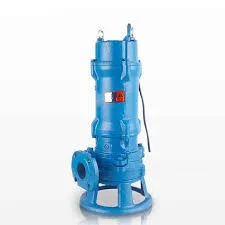English
- Afrikaans
- Albanian
- Amharic
- Arabic
- Armenian
- Azerbaijani
- Basque
- Belarusian
- Bengali
- Bosnian
- Bulgarian
- Catalan
- Cebuano
- Corsican
- Croatian
- Czech
- Danish
- Dutch
- English
- Esperanto
- Estonian
- Finnish
- French
- Frisian
- Galician
- Georgian
- German
- Greek
- Gujarati
- Haitian Creole
- hausa
- hawaiian
- Hebrew
- Hindi
- Miao
- Hungarian
- Icelandic
- igbo
- Indonesian
- irish
- Italian
- Japanese
- Javanese
- Kannada
- kazakh
- Khmer
- Rwandese
- Korean
- Kurdish
- Kyrgyz
- Lao
- Latin
- Latvian
- Lithuanian
- Luxembourgish
- Macedonian
- Malgashi
- Malay
- Malayalam
- Maltese
- Maori
- Marathi
- Mongolian
- Myanmar
- Nepali
- Norwegian
- Norwegian
- Occitan
- Pashto
- Persian
- Polish
- Portuguese
- Punjabi
- Romanian
- Russian
- Samoan
- Scottish Gaelic
- Serbian
- Sesotho
- Shona
- Sindhi
- Sinhala
- Slovak
- Slovenian
- Somali
- Spanish
- Sundanese
- Swahili
- Swedish
- Tagalog
- Tajik
- Tamil
- Tatar
- Telugu
- Thai
- Turkish
- Turkmen
- Ukrainian
- Urdu
- Uighur
- Uzbek
- Vietnamese
- Welsh
- Bantu
- Yiddish
- Yoruba
- Zulu
Telephone: +86 13120555503
Email: frank@cypump.com
Aug . 30, 2024 10:52 Back to list
Best Sewer Pumps
The Best Sewer Pump Essential Guide for Homeowners
When it comes to managing wastewater in residential settings, having an efficient sewer pump is crucial. A sewer pump can help homeowners effectively manage sewage and prevent plumbing issues that can lead to costly repairs. In this article, we will explore the features, types, and factors to consider when selecting the best sewer pump for your needs.
What is a Sewer Pump?
A sewer pump is a vital component of a residential plumbing system, designed to move wastewater from lower to higher elevations where gravity alone cannot do the job. This is particularly important for homes located below the main sewer line, as it ensures that waste is pumped away effectively, keeping your plumbing system functioning efficiently.
Types of Sewer Pumps
1. Submersible Sewer Pumps These pumps are designed to be submerged in the sewage they are pumping. They are powerful, capable of handling solids and are typically used in residential settings where wastewater needs to be moved up to the main sewer line. Their sealed motor allows for quiet operation, making them ideal for basement installations.
2. Effluent Pumps These are designed specifically for pumping greywater and lighter waste, making them suitable for situations where effluent needs to be lifted to a higher elevation. They typically have smaller impellers and are used for less solid waste than submersible pumps.
3. Grinder Pumps For homes with a high level of solid waste, grinder pumps are an excellent option. These pumps grind up sewage into a fine slurry, making it easier to pump through smaller pipes. They are often used in homes with septic systems or where conventional plumbing cannot be used.
best sewer pump

Key Features to Consider
When selecting the best sewer pump for your home, consider the following features
- Capacity Look for pumps with adequate horsepower (HP) ratings. A typical residential sewer pump ranges from 0.5 HP to 3 HP — the higher the HP, the more powerful the pump.
- Material Construction Durable materials such as cast iron or stainless steel ensure longevity. The impeller should be corrosion-resistant and capable of handling solids effectively.
- Automatic Operation Many modern sewer pumps come equipped with float switches that allow for automatic operation. This means the pump activates when the wastewater level reaches a certain point, reducing the need for constant monitoring.
- Noise Level If the sewer pump will be placed in or near living areas, consider models designed for quiet operation. Submersible pumps are usually quieter compared to their non-submersible counterparts.
Conclusion
Choosing the best sewer pump for your home involves a careful consideration of your specific needs and environment. By understanding the different types of pumps available, as well as the key features that can impact performance, you’ll be better equipped to make an informed decision. Investing in a quality sewer pump ensures that your home’s wastewater is managed efficiently, reducing the risk of plumbing issues and providing peace of mind for years to come. Remember, when in doubt, consulting a plumbing professional can also provide valuable insights tailored to your unique situation.
-
ISG Series Vertical Pipeline Pump - Chi Yuan Pumps Co., LTD.
NewsJul.30,2025
-
ISG Series Vertical Pipeline Pump - Chi Yuan Pumps Co., LTD.|energy-efficient fluid handling&industrial durability
NewsJul.30,2025
-
ISG Series Vertical Pipeline Pump - Chi Yuan Pumps | Advanced Engineering&Industrial Efficiency
NewsJul.30,2025
-
ISG Series Pipeline Pump - Chi Yuan Pumps | High Efficiency, Energy Saving
NewsJul.30,2025
-
ISG Series Vertical Pipeline Pump-Chi Yuan Pumps|High Efficiency&Reliable Performance
NewsJul.29,2025
-
ISG Series Vertical Pipeline Pump|High Efficiency&Low Noise
NewsJul.29,2025










